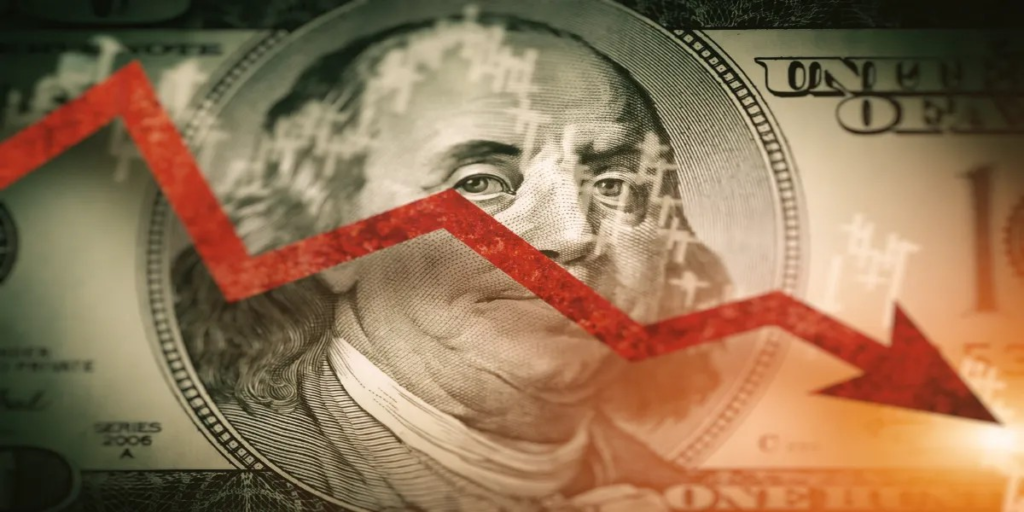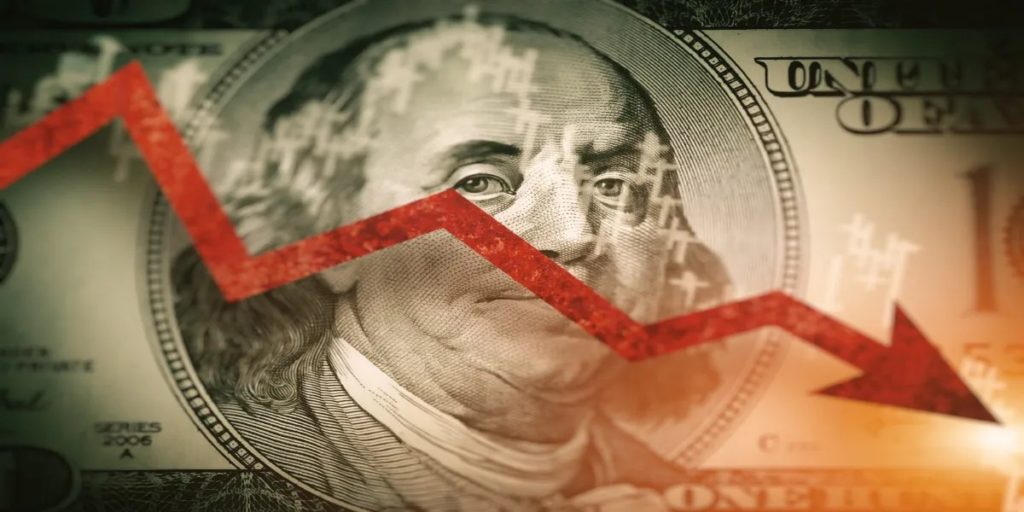Table of Contents
What happens if US dollar collapses?
If the US dollar collapses, it could have severe consequences on the global economy. Some potential outcomes include:
- Hyperinflation: If the dollar loses its value rapidly, prices for goods and services in the US could skyrocket, leading to hyperinflation.
- Economic recession: A collapse of the US dollar could lead to a global economic recession, as the dollar is the world’s reserve currency and is used in many international transactions.
- Loss of confidence in the US: A collapse of the US dollar could lead to a loss of confidence in the US economy and government, which could have long-term consequences for the country’s political and economic stability.
- Shift in global power: If the US dollar were to collapse, it could lead to a shift in global power away from the US and towards other countries or regions.
- Rise of alternative currencies: In the event of a collapse of the US dollar, other currencies such as the Euro or Chinese Yuan could become more prominent in international trade and finance.
How to prepare for the dollar collapse?
However, here are some general steps that individuals can take to prepare for potential economic uncertainty:
- Diversify your assets: Consider diversifying your investments across different asset classes, such as stocks, bonds, and commodities, to help spread your risk.
- Build an emergency fund: Set aside some money in a savings account or other low-risk investment that you can access quickly in case of an emergency.
- Reduce debt: Pay off high-interest debt, such as credit card balances, as quickly as possible to reduce your monthly expenses.
- Consider investing in gold or other precious metals: Some people view gold as a hedge against inflation and economic instability.
- Stay informed: Keep up-to-date with the latest news and economic indicators to help you make informed decisions about your finances.
It’s important to note that these steps may not be appropriate for everyone, and individuals should consult with a financial advisor before making any significant changes to their portfolios.
Is dollar going to rise again?
There are several factors that can affect the fall and rise of the dollar, including:
- Interest rates: Higher interest rates tend to attract foreign investors, leading to an increase in demand for dollars and a rise in its value.
- Economic growth: A strong economy can lead to increased demand for dollars, as investors seek to invest in profitable businesses and assets.
- Inflation: High inflation rates can cause the value of the dollar to fall, as investors seek to protect their assets by investing in other currencies or assets.
- Political stability: Political instability or uncertainty can cause investors to lose confidence in a country’s economy and currency, leading to a fall in the value of the dollar.
- Trade balances: A trade deficit, where a country imports more than it exports, can cause the value of the dollar to fall, as there is an excess supply of dollars on the market. Conversely, a trade surplus can lead to an increase in demand for dollars and a rise in its value.
- Central bank actions: The actions of the Federal Reserve, such as increasing or decreasing interest rates or implementing monetary policies, can have a significant impact on the value of the dollar.
How to save your finances
- Create a budget: Make a list of your monthly income and expenses. This will help you identify areas where you can cut back on spending and save more money.
- Start an emergency fund: Set aside some money each month for unexpected expenses. Aim to have at least three to six months’ worth of living expenses saved in case of an emergency.
- Pay off debt: Prioritize paying off high-interest debt, such as credit card debt. This will save you money in the long run and improve your credit score.
- Invest in a retirement account: If your employer offers a 401(k) or other retirement plan, contribute as much as you can. If not, consider opening an individual retirement account (IRA).
- Diversify your investments: Invest in a mix of stocks, bonds, and other assets to reduce risk and maximize returns.
- Consider investing in real estate: Real estate can be a good investment if you have the funds and knowledge to do so.
- Invest in yourself: Invest in education and training to improve your skills and increase your earning potential.
As for what currency to invest in, that depends on your personal preferences and financial goals. Some popular currencies for investing include the US dollar, euro, Japanese yen, and British pound. It’s important to do your research and consult with a financial advisor before making any investment decisions.




